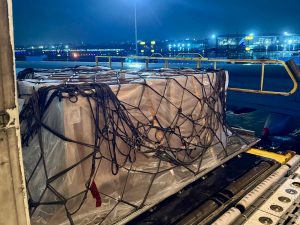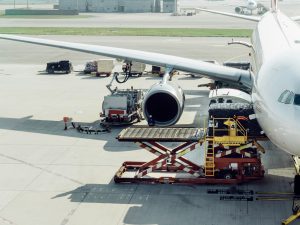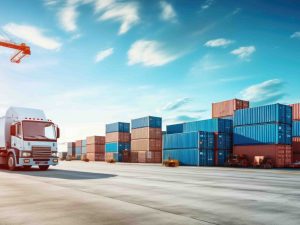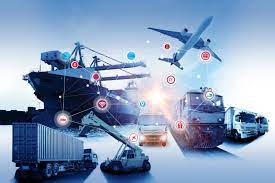According to CBRE’s latest survey titled, India Logistics Occupier Survery 2025, India is quickly emerging as the most preferred warehousing destination in the Asia-Pacific region, as nearly 70 per cent of APAC occupiers plan to expand their logistics footprint in the country over the next two years. It highlights strong occupier confidence in India’s industrial and logistics (I&L) sector. The growing intent is a reflection of shifting global supply chain strategies, a surge in domestic consumption, and the availability of advanced logistics infra. The survey was conducted between March and April 2025 and gathered over 380 responses from logistics occupiers across the Asia-Pacific region, including over 100 from India-based firms. More than 80% of India-based occupiers, including both domestic and multinational corporations, expressed plans to expand their warehousing operations in the country over the next two years, signaling long-term optimism and continued investment momentum. This comes despite prevailing macroeconomic uncertainties, indicating India’s strong resilience and rising strategic importance in the global supply chain ecosystem.
Read More »IAG Cargo signs up for digital conversions of airway bills
IAG Cargo has signed up to use CHAMP Cargosystem’s CHAMP A2Z Scan to convert paper air waybills into a digital format. The A2Z system uses AI and Optical Character Recognition (OCR) technology to extract data from paper documents for consolidation with all downstream processes and systems. The partnership follows a recent successful trial. IAG Cargo customers can access CHAMP A2Z Scan capabilities through the IAG Cargo portal. CHAMP claimed the tool delivers significant time savings by streamlining processes and also prevents delays. The system is run through CHAMP’s Cargospot-neo cargo management platform and is designed for use by airlines and ground handling agents.
Read More »Snowman begins operations at new cold storage facility at Kundli
Snowman Logistics announce the commencement of operations at its new warehousing facility in Kundli, Delhi NCR. The facility, taken on long-term lease, adds 3,576 pallet positions to the company’s capacity, taking its total to 154,330 pallets across 44 warehouses in 21 cities. In addition to its warehousing network, Snowman operates a fleet of 296 owned and over 325+ leased refrigerated vehicles, ensuring seamless cold chain connectivity across the country. Strategically located in the Delhi NCR region, the Kundli facility is equipped with state-of-the-art technology and robust infrastructure to serve a wide array of industries, including Quick Service Restaurants (QSR), Ice Cream, Dairy, Confectionery, Ready-to-Eat Meals, Bakery, Fresh Produce, and Pharmaceuticals.
Read More »Magnum Cargo handles 1,02,000 kgs shipment from BOM to PRG
Magnum Cargo announced that it has successfully handled heavy-weight air charter flight shipment from Chhatrapati Shivaji Maharaj International Airport Mumbai (BOM) to Prague Václav Havel Airport (PRG). The shipment weighed 1,02,000 kgs. “Although this is not the first time, Magnum Cargo has showcased a logistics project of such big level, we intend to take pride in our seamless and smooth operations,” an official from Magnum Cargo said in an official Linkedin Post.
Read More »Air cargo volumes flat in June as consumers scale back on non-essential goods
According to Xeneta’s latest updates, “Air cargo volumes could drop as consumers scale back on non-essential goods, while shippers are favouring shorter-term contracts in a climate of uncertainty. Niall van de Wouw, Xeneta’s Chief Airfreight Officer, said consumers are looking to save money amid concerns about international trade. Global air cargo volumes were flat in June, up just 1 per cent year on year, while available capacity, measured over the same period, increased 2 per cent. Global air cargo spot rates declined for a second consecutive month in June, down by 4 per cent year-on-year as supply of capacity overtook demand for the first time in 19 months. “The air cargo market is losing altitude amidst so much uncertainty,” van de Wouw said. “For consumers who were already under severe financial pressure from the rise in the everyday cost-of-living, the added cost of tariffs means they are more likely to think twice about buying many of the types of goods which are exported and imported by air.” Despite the disruption from changes to tariffs and e-commerce (de minimis) in the first half of the year, air cargo demand still grew by 3 per cent in that period compared to the same period a year earlier.
Read More »‘Electronics, pharma, perishables driving air cargo growth’
Pradeep Panicker, CEO, GMR Hyderabad International Airport (GHIAL) said, “Growth in both domestic and international air cargo is being propelled by three major sectors, electronics, pharmaceuticals and perishables. In the international segment, electronics have shown strong momentum. India’s electronic goods exports grew nearly 40 per cent year-on-year. Hyderabad Air Cargo recorded a 53 per cent surge in electronics shipments, with this segment contributing to 8 per cent of Hyderabad Airport’s total cargo tonnage — highlighting the city’s rising importance in global electronics manufacturing and distribution. In pharmaceuticals, while the national export growth remained moderate at 2.37 per cent, Hyderabad Air Cargo posted a robust 13 per cent year-on-year increase. Pharma now accounts for 68 per cent of Hyderabad Airport’s tonnage within this category, reaffirming the airport’s position as a key pharma export hub. Perishables, such as fruits and vegetables, are also gaining significant traction. National exports of perishables rose by 30.72 per cent, whereas Hyderabad Air Cargo experienced a striking 58 per cent growth in this segment, which now makes up 10 per cent of the airport’s total cargo tonnage — a reflection of growing global demand for Indian fresh produce.”
Read More »‘Govt must standardise time taken for loading/ offloading of cargo from trucks’
One key area where support is needed is in standardising the time taken for loading and offloading of cargo from trucks,” said Reema Jogani, Chairperson, Women’s Wing, All India Transporters Welfare Association (AITWA). “If the Government mandates timelines for these processes, it would be a significant step forward in improving turnaround times and reducing operational bottlenecks. Another area of concern is the issuance of challans, especially for speeding or traffic violations committed by drivers. Digitising and making challans instantly accessible to drivers can serve as a valuable tool for raising awareness and encouraging behavioural change at the ground level. Additionally, the development of more driver rest areas along highways is essential.”
Read More »27 logistics parks to be build up in UP: CM
27 integrated manufacturing and logistics clusters (IMLCs) will be developed across 26 districts in Uttar Pradesh, announced state’s Chief Minister, Yogi Adityanath. The clusters will be set up along five expressways, spanning over 13,240 acres, out of which 9,864 acres have already been acquired, the reports added. These are expected to boost economic development and attract global investment. The IMLCs will utilise the state’s extensive expressway network, enhancing logistics and reducing travel time, Yogi was cited as saying by media reports from the state. These will offer attractive land rates, specialised logistics facilities, seamless connectivity, dedicated basic infrastructure, transparent land allocation process, favourable industrial environment and skilled labour. Investors will be offered plots at competitive prices, while specialised logistics facilities will be provided and there will be convenience access to road, rail and air connectivity.
Read More »GLN unveils digital tool to boost air freight payments
Global Logistics Network (GLN) has launched GLN Pay, an innovative international payment solution built specifically for freight and logistics professionals. Developed in strategic partnership with CargoAi, GLN Pay is powered by CargoWALLET technology and enables secure, real-time payments across 150+ countries and 47 currencies. With GLN CargoWALLET, GLN members can send or receive payments from other network members—or any freight partner—regardless of whether the recipient has a GLN CargoWALLET account. This flexibility is designed to eliminate traditional payment barriers and enhance collaboration across the global supply chain. GLN CargoWALLET was created to address common financial and operational pain points in freight forwarding, consolidation, air and ocean cargo handling, and GSSA services. It delivers a suite of powerful features, including: · Instant Payment Processing – Real-time settlements worldwide · Guest Payment Options – Send payments and receive payments even from partners not on GLN CargoWALLET · Multi-Currency Support – Transact in 47 currencies across over 150 countries · Enterprise-Grade Security – End-to-end encryption with full traceability · Operational Efficiency – Simplified reconciliation and better cash flow management “GLN CargoWALLET represents a major step forward for our network,” said Ernst van der Heijden, President of Global Logistics Network. “By integrating a smart, seamless, and secure payment solution into our ecosystem, we’re enabling members to operate with greater efficiency, speed, and trust.”
Read More »‘Developing transit zones, competitive tariff structure vital’
Jalpa H Vithalani, Director, Global Aviation Services said, “India holds immense potential to become a global transshipment hub like Dubai or Singapore, owing to its strategic coastline and growing cargo volumes. To achieve this, India must focus on policy reforms enabling ease of doing business, seamless multimodal connectivity, and robust port infrastructure. Initiatives like PM Gati Shakti and Sagarmala are steps in the right direction. Developing world-class transshipment zones, reducing dwell times, and offering competitive tariff structures will be key. Private sector participation and digital integration across logistics chains can further position India as a global trade and logistics powerhouse.”
Read More » Cargo Breaking News
Cargo Breaking News









